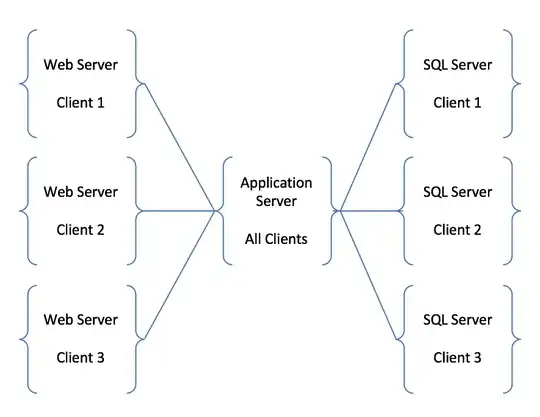First you must make sure that you are not facing an x-y problem, because having one database per user behind the same application is not the most common design. It is much more common to share the database and let the application implement the user separation. Among other advantages, you have one single database connection, which greatly eases scalability and database maintenance.
If you really need that design, my prefered choice would be to let the password responsability to the users. If it is an option, the database password could simply be the web user password. That way you do not even have to store it and just create the database connection at login time and close it at logout (or end of web session). Alternatively, you could derive a key from each individual web password and use it to encrypt the database password for each user if you want to maintain them separate => result is the same, you need the web password that you do not store, to access to the database
If none of those are acceptable options, you will have to store the passwords in an invertible form on the application server, but it is a security nightmare. Your options are:
- don't care at all: store the passwords in clear text and pray that nobody ever get access to those data - surprisingly it is a too common option(*)...
- don't care much: same as above but encrypt the passwords with a fixed key hardcoded in the application - a little better because the attacker now needs two elements but one of them can never change
- do your best: encrypt the passwords with a modifiable key. It could be read from the environment at boot time and changed on a regular base, say every month for example. But that means that when changing the master password you also must change all database passwords in a atomic way - ok, any database can do it, but beuhhh.... Alternatively you could mimic password vaults and encrypt a whole file at the cost that accessing an individual password will require a full decryption unless you accept to keep the full database in clear text in memory.
(*) ... but it can be an acceptable option if the application server and the database servers are in the same security zone.
